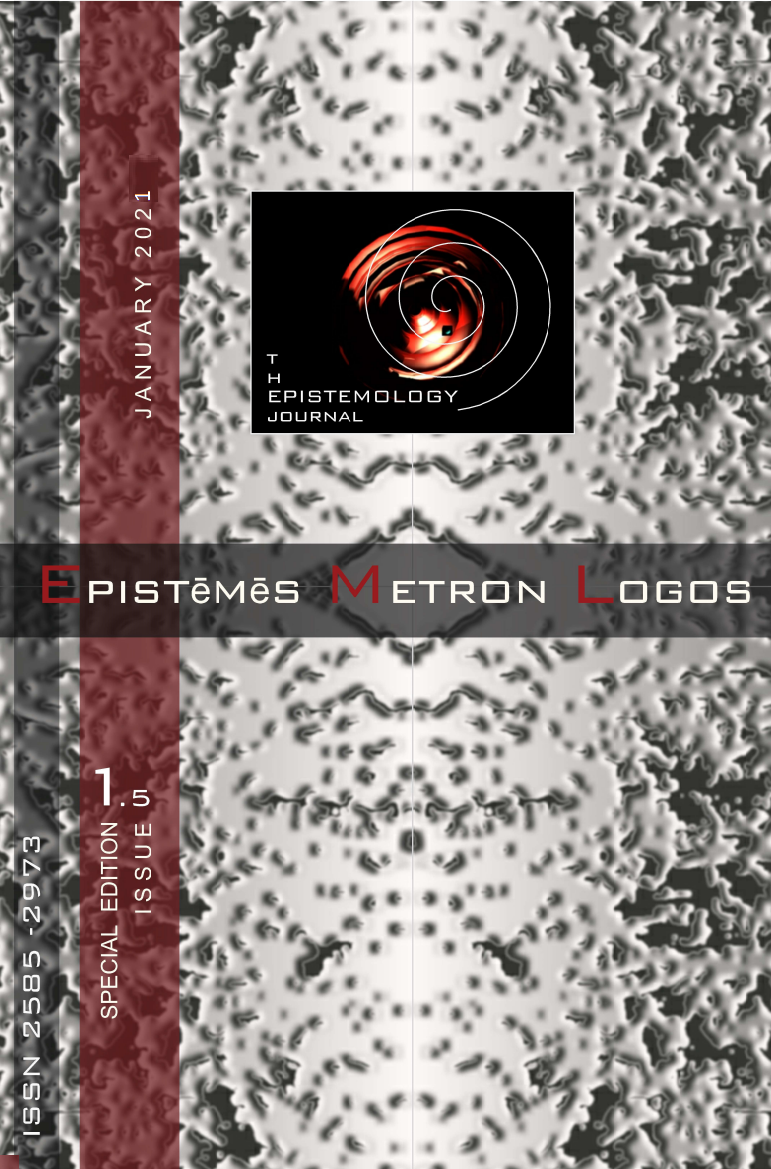Protovarys in theory, tetraphonos in practice?: preliminary observations on an archaeology of the Varys’ intervallics
Περίληψη
This paper opens with a caveat: as denoted in the title, its intention is not to be exhaustive on its subject, as of yet (future publication soon to follow). Attempted will be the exposition and commentation upon a series of indications regarding the intervallics of the plagal third mode, commonly referred to in the sources as Varys (low; due to being the mode with the lowest basis/ison in the ecclesiastical eight-mode system, Octoechos). If these result to a reacquaintance with the mode and a reconsideration of some of its intervallic possibilities, then the paper will have been successful in its intentions.
Λεπτομέρειες άρθρου
- Πώς να δημιουργήσετε Αναφορές
-
Savvas, G. (2021). Protovarys in theory, tetraphonos in practice?: preliminary observations on an archaeology of the Varys’ intervallics. Epistēmēs Metron Logos, (5). https://doi.org/10.12681/eml.27595
- Ενότητα
- Φορέας Έκδοσης

Αυτή η εργασία είναι αδειοδοτημένη υπό το CC Αναφορά Δημιουργού – Μη Εμπορική Χρήση 4.0.
Οι συγγραφείς των άρθρων που δημοσιεύονται στο περιοδικό διατηρούν τα δικαιώματα πνευματικής ιδιοκτησίας επί των άρθρων τους, δίνοντας στο περιοδικό το δικαίωμα της πρώτης δημοσίευσης.
Άρθρα που δημοσιεύονται στο περιοδικό διατίθενται με άδεια Creative Commons 4.0 Non Commercial και σύμφωνα με την άδεια μπορούν να χρησιμοποιούνται ελεύθερα, με αναφορά στο/στη συγγραφέα και στην πρώτη δημοσίευση για μη κερδοσκοπικούς σκοπούς.
Οι συγγραφείς μπορούν να καταθέσουν το άρθρο σε ιδρυματικό ή άλλο αποθετήριο ή/και να το δημοσιεύσουν σε άλλη έκδοση, με υποχρεωτική την αναφορά πρώτης δημοσίευσης στο EMΛ
Οι συγγραφείς ενθαρρύνονται να καταθέσουν σε αποθετήριο ή να δημοσιεύσουν την εργασία τους στο διαδίκτυο πριν ή κατά τη διαδικασία υποβολής και αξιολόγησής της.



